Global Governance
Your Present Location: PROGRAMS> Global Governance-
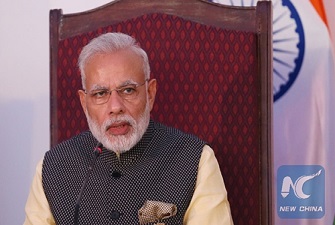
Ding Gang: Many questions for India after temple verdict
The Indian Supreme Court's decision on Saturday made history by clearing the decks for the construction of a Hindu temple by giving the ownership of a disputed plot of land at Ayodhya in the northern state of Uttar Pradesh to Hindus.
2019-11-14 -
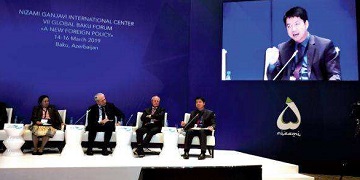
Wang Wen: ‘Gn’ shows how power structures shape new intl governance mechanism
It is hard to imagine that Azerbaijan, a country that ranks above 90 in terms of area and population, has such a global appeal, if you haven't taken part in Global Baku Forum. I almost thought President Ilham Aliyev was the leader of a superpower, when he stood in the center of more than 40 former presidents and prime ministers from more than 30 countries and posed with them for pictures at the opening ceremony.
2019-11-12 -
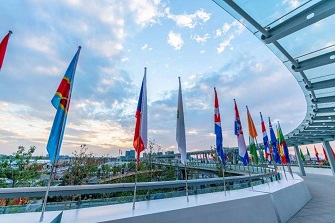
William Jones: Media and think tanks join hands to combat 'fake news' about China
Around 270 representatives of think tanks and media organizations from 99 countries gathered in Shanghai on November 6 and 7 for the second Hongqiao International Economic Forum on China's 70-year Development and the Building of a Community with a Shared Future for Mankind, to discuss the significance for the world of China's road to prosperity over the last 70 years and celebrate the success of the Belt and Road Initiative (BRI).
2019-11-11 -
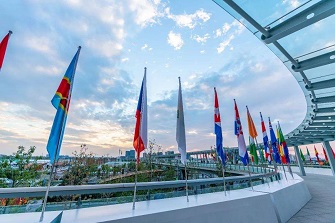
William Jones: Media and think tanks join hands to combat 'fake news' about China
Around 270 representatives of think tanks and media organizations from 99 countries gathered in Shanghai on November 6 and 7 for the second Hongqiao International Economic Forum on China's 70-year Development and the Building of a Community with a Shared Future for Mankind, to discuss the significance for the world of China's road to prosperity over the last 70 years and celebrate the success of the Belt and Road Initiative (BRI).
2019-11-11 -
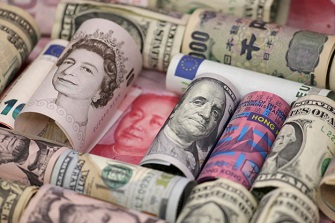
He Yafei: Global Changes Require China to Open Further
The world today faces profound changes unseen in a century, including in its economy. The rapid development of multi-polarization and economic globalization over the past several decades has brought about major changes in the balance of economic power. These changes are characterized by the rise of new powers in the East and the fall of old ones in the West, with the overall strength of developing countries and emerging economies rising considerably.
2019-11-08 -

ASEAN envoys seek to finalize massive free trade pact deal
Whether a momentous free trade pact can be finalized has attracted considerable media attention at the 35th Association of Southeast Asian Nations (ASEAN) Summit, being held in Bangkok, Thailand starting on Sunday. Summit host Thailand expressed optimism for the Regional Comprehensive Economic Partnership (RCEP), as Thailand's Deputy Prime Minister and Commerce Minister Jurin Laksanawisit was quoted in The Bangkok Post as saying "participants of the RCEP hope to finalize talks on the 16-nation pact" on Friday.
2019-11-06 -

Guan Zhaoyu: Greece Connects China with Europe, Cultural Communication Under 17+1
17+1 is not just limited to economic trade but also refers to cultural communication. Since 2019 there have been 36 Confucius Institutes in CEE countries. This number has increased by 50 percent over five years. Especially in Hungary, where there are five Confucius Institutes now. From 2012 to 2019, the number of registered students in Confucius Institutes has increased from 15,000 to 52,000 thousand in CEE countries.
2019-11-06 -
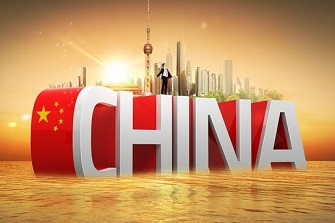
Wang Wen: Embracing and benefiting from China the best choice for the world
During my Cairo visit, I suggested to a few Egyptian diplomats that their country should allow visa-free entry for Chinese passport holders so they could visit and help promote Egypt's economic development. I was surprised to hear the reasons why this would be difficult. Apparently, there aren't enough hotels, only a few shopping malls, an underdeveloped payment system, and a shortage of Chinese tour guides. If there are too many Chinese traveling in Egypt, the country could not handle it, they explained.
2019-11-05 -

Ding Gang: China’s growth inseparable from its system
In the article "Farm lessons from China" published on The India Express, Indian scholars Ashok Gulati and Sakshi Gupta suggest that India should pay attention to China's three lessons to improve agricultural production. First, China spends a lot more on agriculture knowledge and innovation system (AKIS), which includes agricultural R&D and extension. Second, the incentive structure as measured by producer support estimates (PSEs) is much better for Chinese farmers than Indian farmers. The third lesson pertains to direct income support schemes.
2019-10-31 -
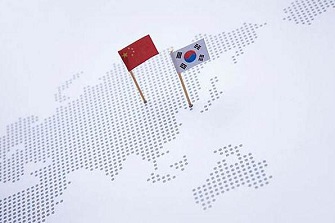
Ding Gang: What affects everlasting peace in East Asia?
I attended the 7th China-ROK Public Diplomacy Forum held from October 16 to 18 in Incheon, South Korea. The theme of the first session focused on peace and cooperation in Northeast Asia. During the tea break, a member of the South Korean audience walked up to me and asked very inquisitively: "Can you [China] defeat the US?" What he was referring to is the trade war. I replied that first it is not an issue about victory or defeat. Second, China is not trying to defeat the US, which is not capable of vanquishing China.
2019-10-24 -
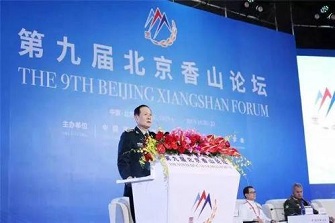
Regional security architecture should emphasize inclusiveness
The 9th Beijing Xiangshan Forum kicked off in Beijing on Monday. Chinese State Councilor and Minister of National Defense Wei Fenghe delivered a keynote speech at the opening ceremony. Wei clarified China's position on a variety of key issues. Minister Wei pointed out that regional affairs should be handled by regional countries. China is gaining an increasing influence in the Asia-Pacific region and has an increasing problem-solving capability regarding regional affairs, including security issues. China believes that regional affairs must be solved by regional members through cooperation and coordination.
2019-10-22 -
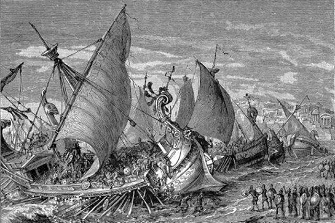
He Yafei: Great-Power Awareness of Crisis and Tragic Sensibility
American scholars have recently trumpeted a geopolitical “tragic sensibility.” They believe that the United States has been reluctant to squarely face the challenges posed by China and Russia – a result of the loss of its tragic sensibility and awareness of crisis needed to create a collective sense of responsibility and take decisive action.The so-called tragic sensibility originates from the obsession and reflection of tragedies in ancient Greece.
2019-10-11 -

William Jones: Beware of the doomsday prophets
As little Greta Thunberg was making her prime-time appearance at the UN Climate Summit, in an almost hysterical state, railing against world leaders who were talking about "fairy tales of eternal economic growth" while the world was facing "mass extinction" because CO2 levels have not been brought down to "net zero," I could not but feel a little sorry for this poor child from Sweden. But psychologically, she is undoubtedly in a very fragile state. I don't know who put her there, but it is well-nigh criminal that they have done so. Even more criminal is the attempt to put her on a world tour to spread her irrational fears of "mass extinction."
2019-10-08 -
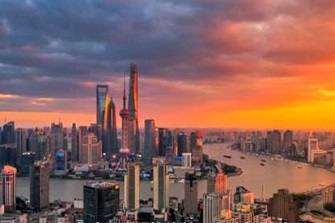
White paper highlights nation's contributions to global progress
A major white paper reaffirming China's development and its role in building an international community with a shared future for mankind helps the world better understand the country and its significant contributions to world progress, according to experts and observers. The document, "China and the World in the New Era", was issued by the State Council Information Office in the run-up to celebrations on Tuesday marking the 70th anniversary of the founding of the People's Republic of China.
2019-09-30 -
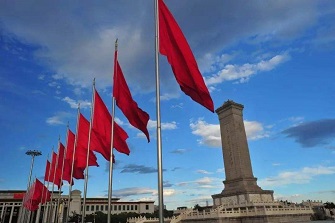
William Jones: “Right to Develop”—Center of Human Rights
The release of China’s White Paper on Human Rights comes at an important time when the world has been witnessing to the recent violence in Hong Kong, where many of the activists are claiming that their lawful rights were being endangered by a proposed draft law for extraditing criminals. In the course of this turmoil, time and again the claims were made that China was a “human rights violator” and this by the very people who were shutting down the Hong Kong economy and making it impossible for many Hong Kongers to even learn their livelihood.
2019-09-29 -
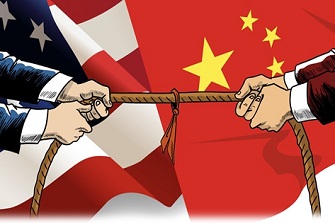
Wang Wen on Changing World 17: How China can gain from trade headwinds
On August 20, 2019, Wang Wen, Executive Dean of Chongyang Institute for Financial Studies at Renmin University of China (RDCY), opened the new column “Wang Wen on Changing World” in Global Times (English edition). Following is the list of all articles.
2019-09-04 -
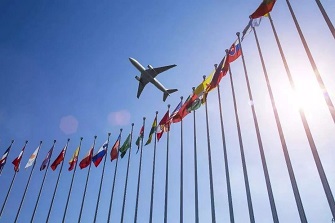
Danilo Türk: World is heading toward multipolarity. But what kind?
The American tariff hikes have a limited impact on the global economy. Technological progress can be slowed down as a result of American restrictions, but it cannot be stopped no matter how hard the current US president tries. The world has changed and the era of a seeming unipolarity with the US at the top is irreversibly over. The real question is what kind of multipolar world will emerge in the 21st Century. Its contours can be detected already and it will be, to a large extent, defined by China.
2019-08-30 -
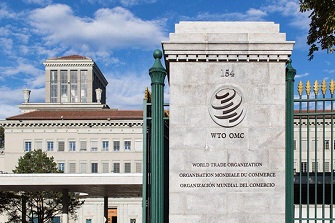
He Weiwen: US threat to WTO won't get it anywhere
The US leader signed a memorandum on July 26, directing the Office of the United States Trade Representative to stop treating "advanced economies" such as China as developing countries according to the World Trade Organization's rules, and urging the WTO to change its definition for developing country within 90 days. But since major reforms to the WTO require consensus (in effect unanimity) among all members, the world trade body cannot change the definition, even if it wants to.
2019-08-26 -

Danilo Türk: China on course to a promising future
2019 marks the 70th anniversary of the founding of the People's Republic of China (PRC). How far is China away from realizing its rejuvenation? How hard will the process be? How will China's development influence the world in the future? Global Times interviewed Professor Danilo Türk (Türk) on these issues.
2019-08-19 -
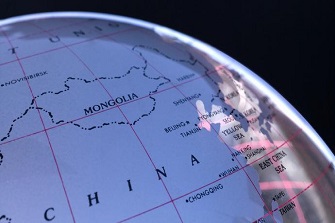
He Yafei: Present-day World Needs to Uphold and Rebuild Multilateralism
During a recent personal discussion about multilateralism and in response to witnessing the ongoing chaos worldwide, former Slovenian President Danilo Türk stated to me that the world today is going “from hopeful to possible success.” From our conversation, we both came to the conclusion that although multilateralism is under attack and the global governance regime is porous, international collaboration can still be reborn and can ultimately succeed with support from such emerging countries as China and others.
2019-08-16
























































































 京公网安备 11010802037854号
京公网安备 11010802037854号





